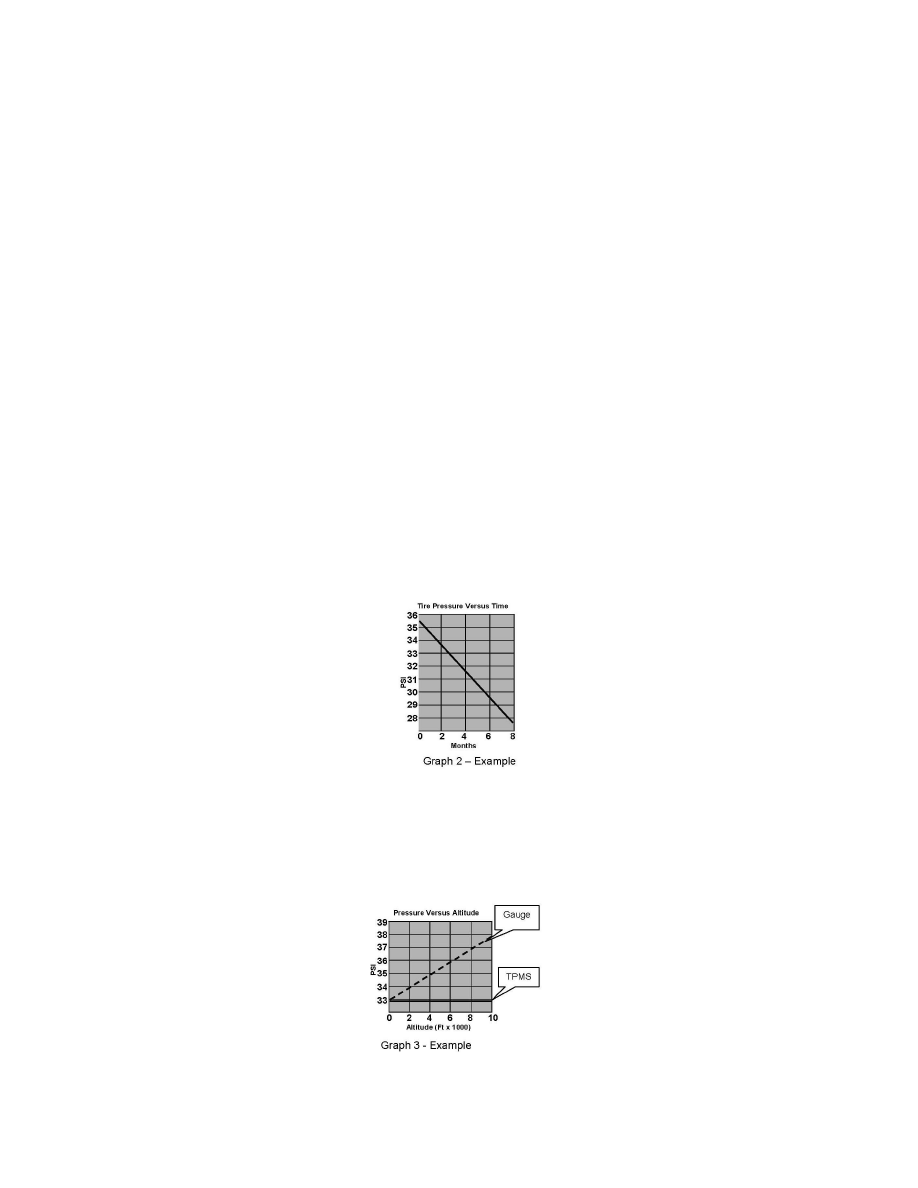Leaf ELE-Electric Engine (2011)

Temperature:
^ Tire pressure changes approximately 0.8 psi for every 10°F of temperature change. As temperature decreases, pressure decreases.
^ Tire pressure may change 3 - 5 psi between a Cold reading and a reading taken just after the vehicle has been driven for several miles.
^ Seasonal temperature change can result in tire pressure that is low enough to turn on the Low Tire Pressure Warning Light.
Example 1 - Seasonal Temperature Change:
^ The temperature of the vehicle is 70°F after sitting in the shop.
^ Ambient temperature outside the shop is 30°F or will soon fall to 30°F due to seasonal change.
^ Recommended pressure on the TIRE AND LOADING INFORMATION label is 35 psi..
^ The tire pressure should be compensated an additional +3 psi and adjusted to 38 psi to avoid dropping below the label value when the vehicle
experiences cooler ambient air temperature.
^ Compensation should also be used in the PDI process as needed.
Example 2 - WARM Tires:
^ A vehicle arrives to the dealer after being driven across town.
^ The WARM tire pressure reading is 32 psi.
^ Recommended COLD tire pressure on the TIRE AND LOADING INFORMATION label is 35 psi.
^ The tire pressure should be compensated an additional +3 psi and adjusted to 38 psi to avoid dropping below the label value when the tires cool.
Natural tire pressure loss over time:
^ Vehicle tire pressure can naturally decrease by approximately 1.0 - 1.5 psi per month. This will vary due to seasonal temperature change.
^ After 6 to 8 months tire pressure may be low enough to turn ON the Low Tire Pressure Warning Light.
High Altitude
^ At high altitude locations, a standard tire pressure gauge may show the tire pressure higher than the TPMS system. If the gauge reading is not
accounted for, this could result in turning ON the Low Tire Pressure Warning Light.
^ Standard tire pressure gauge readings increase about 1.0 psi for every 2,200 ft of altitude increase above sea level (up to 10,000 ft). See graph 3.
